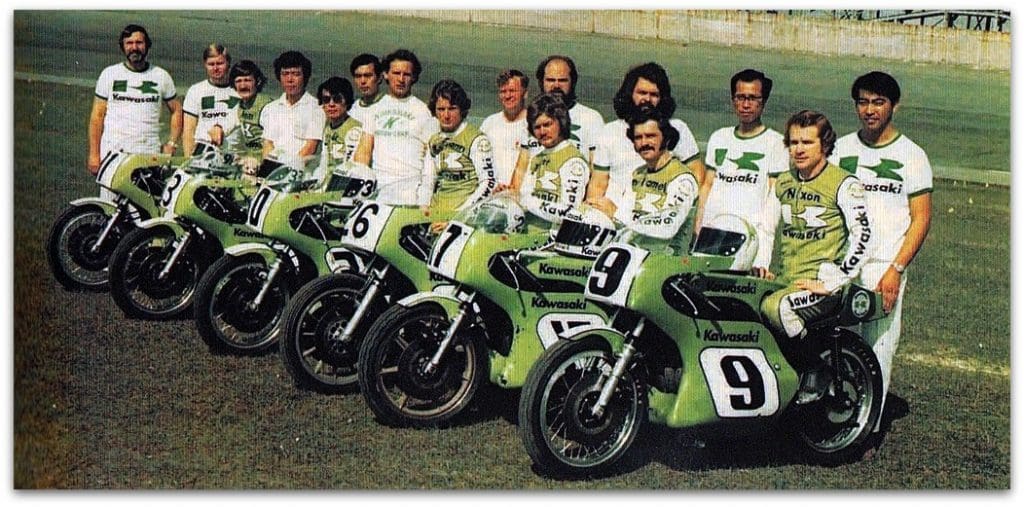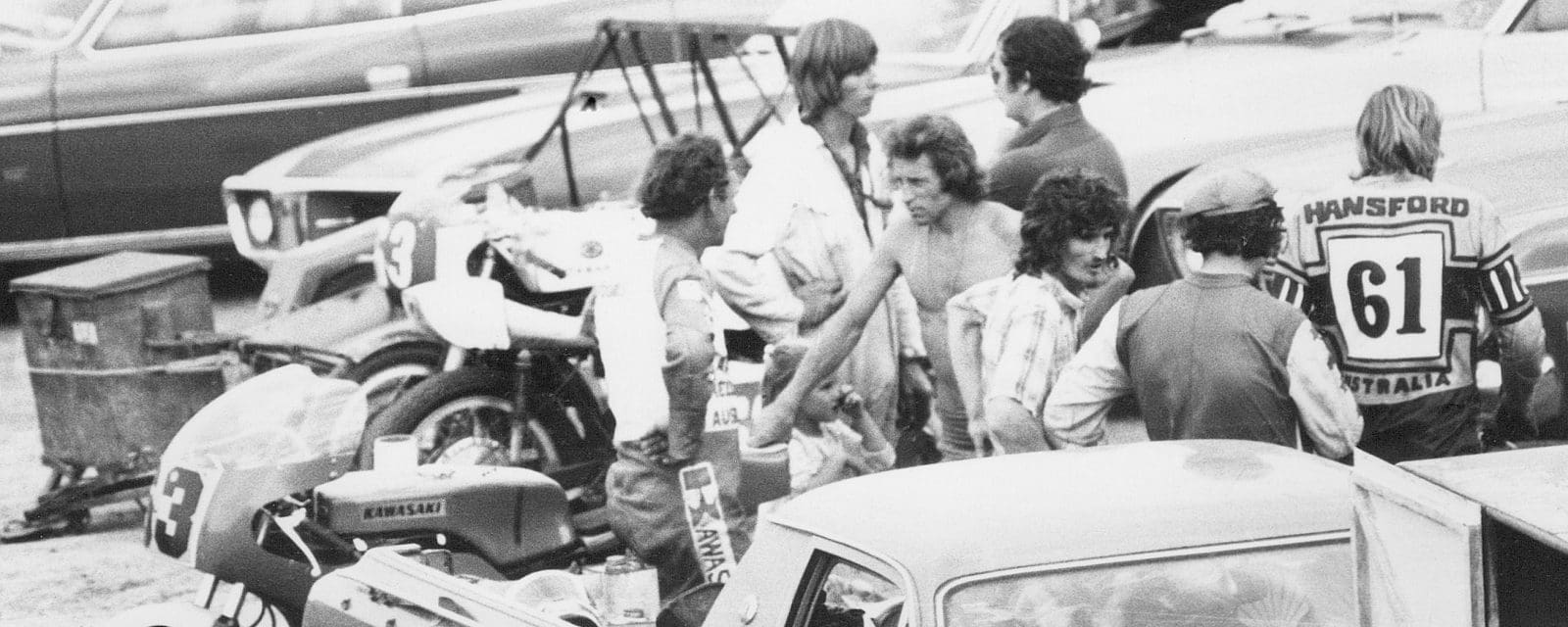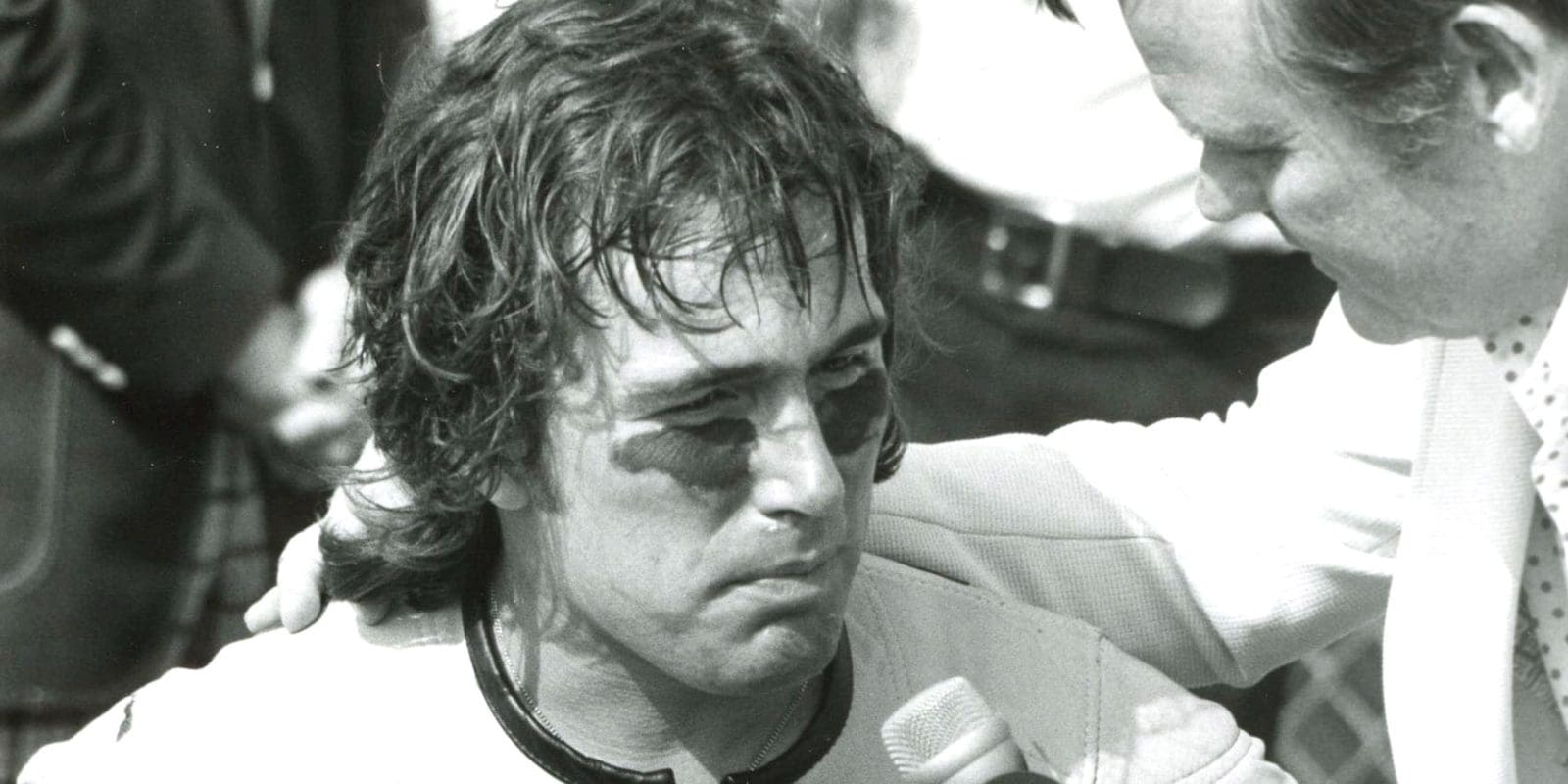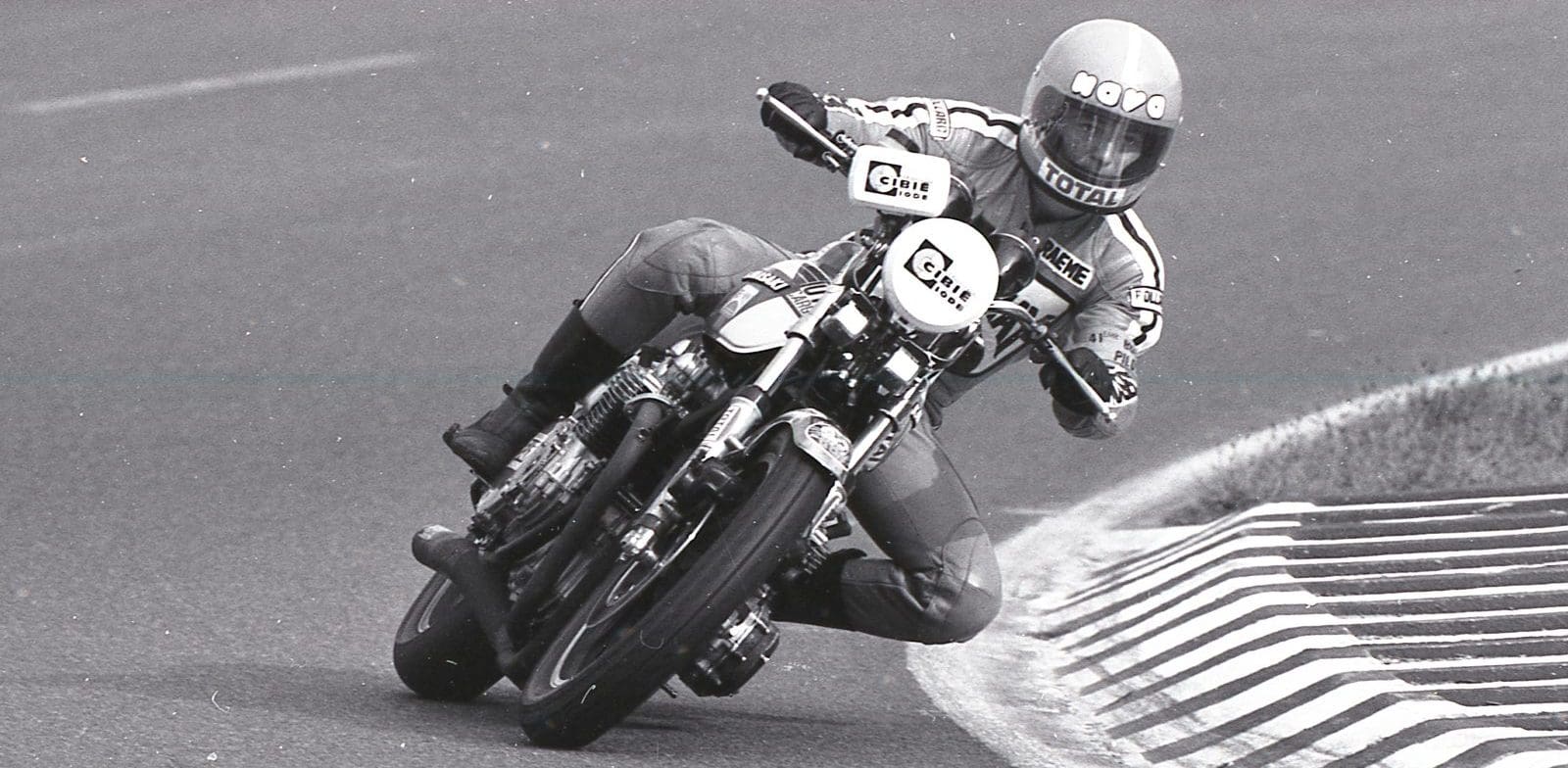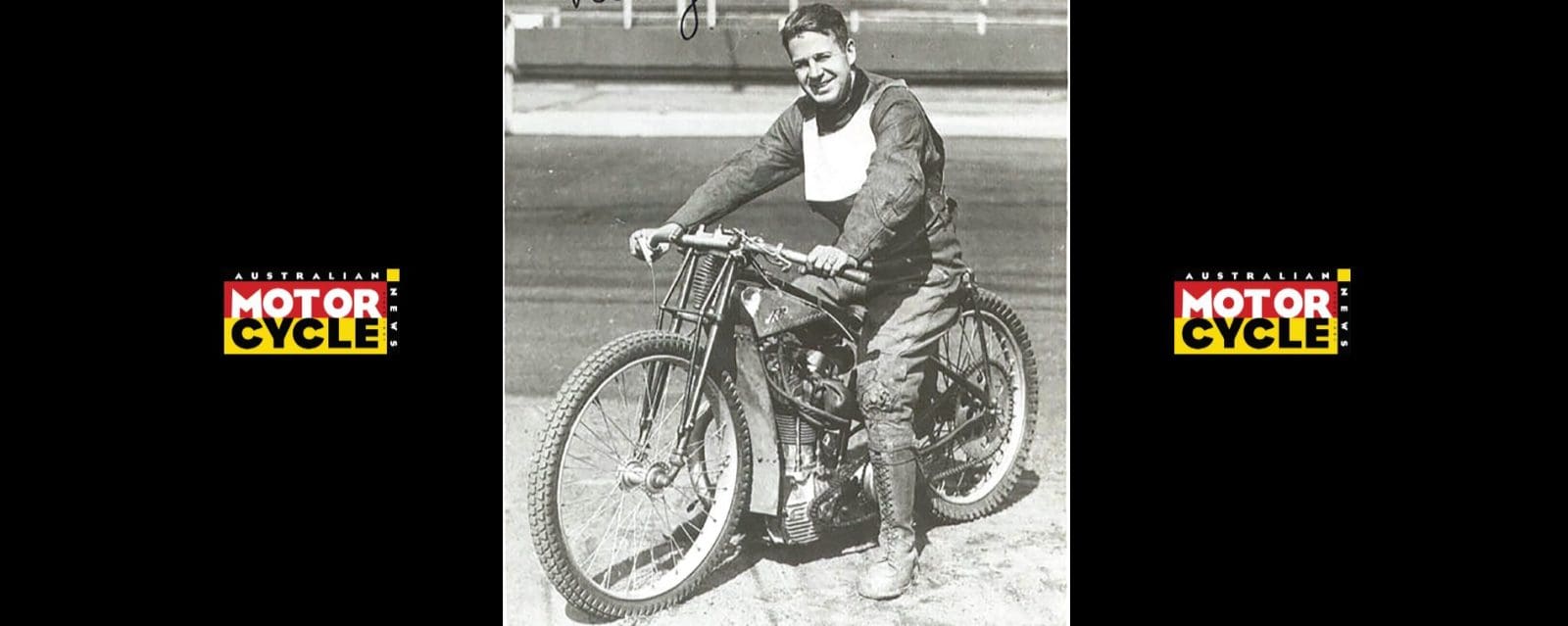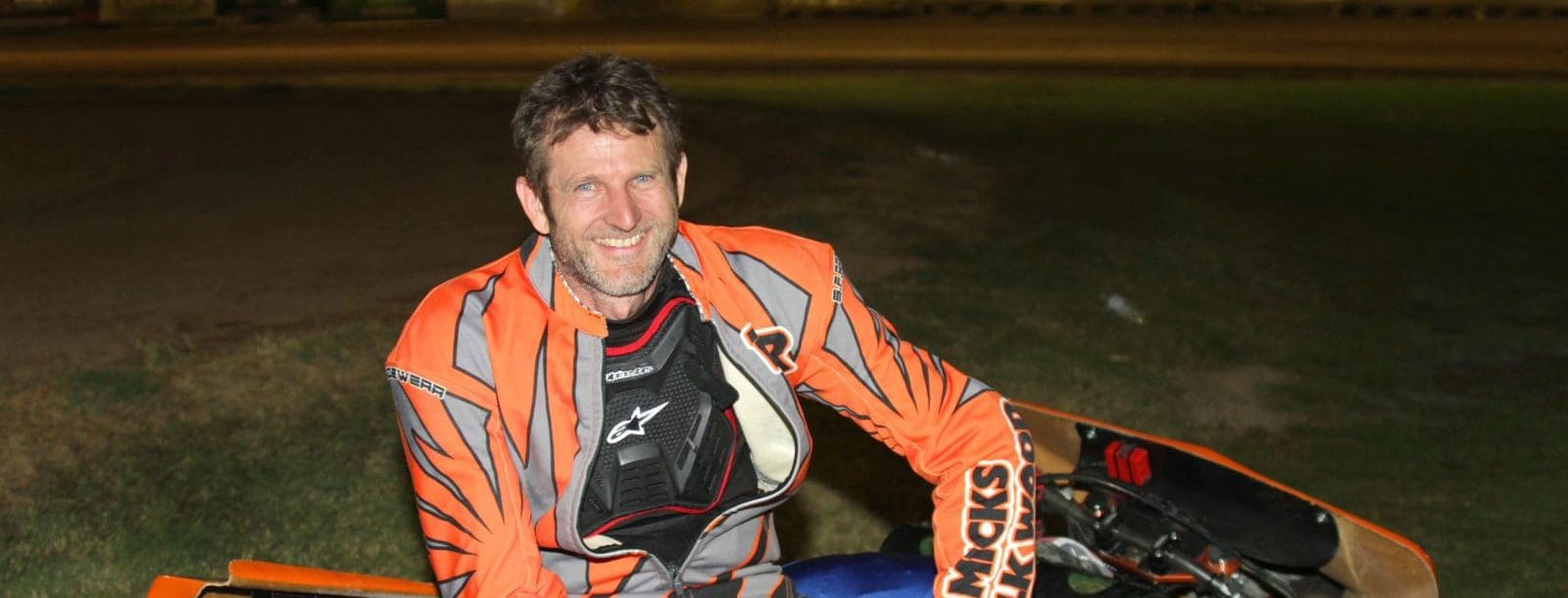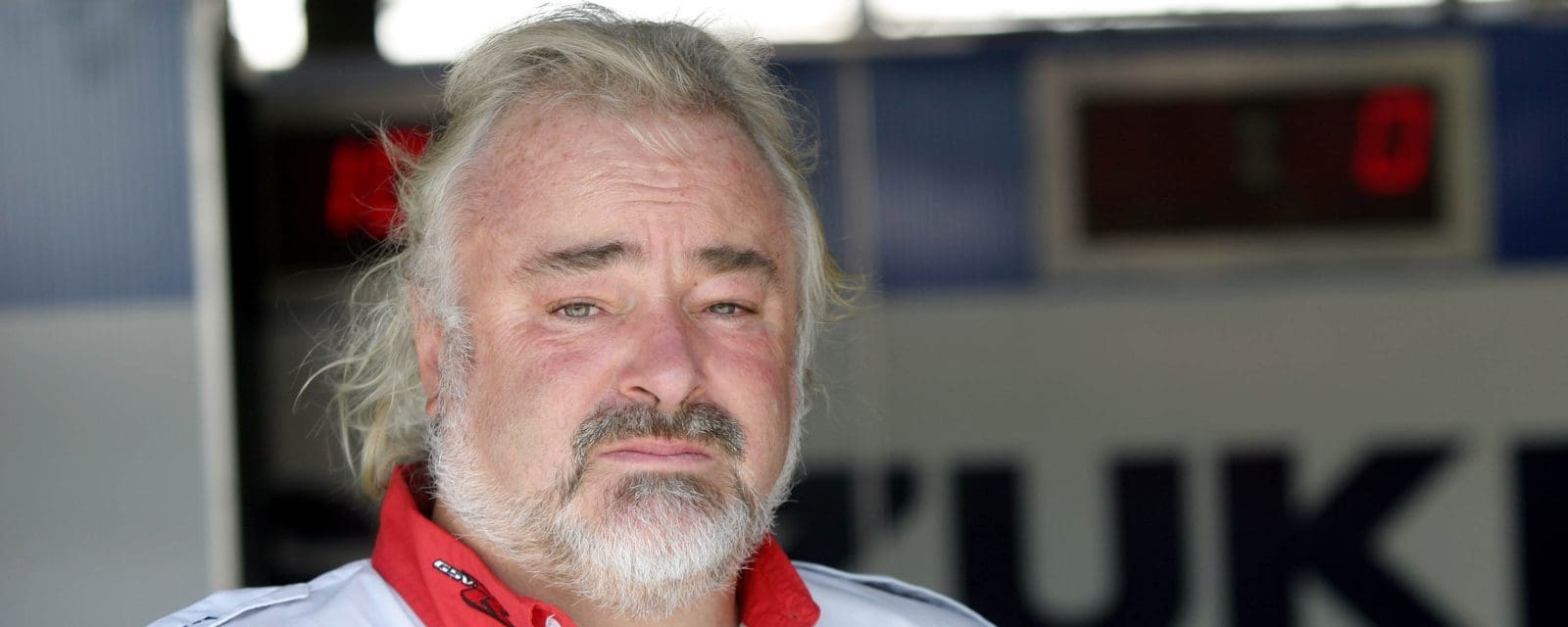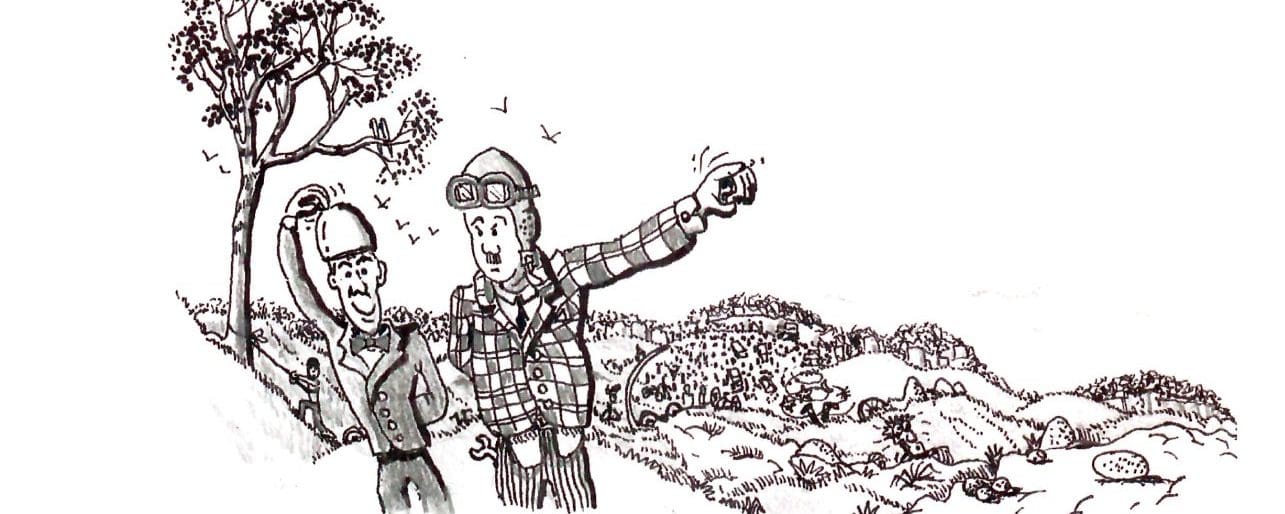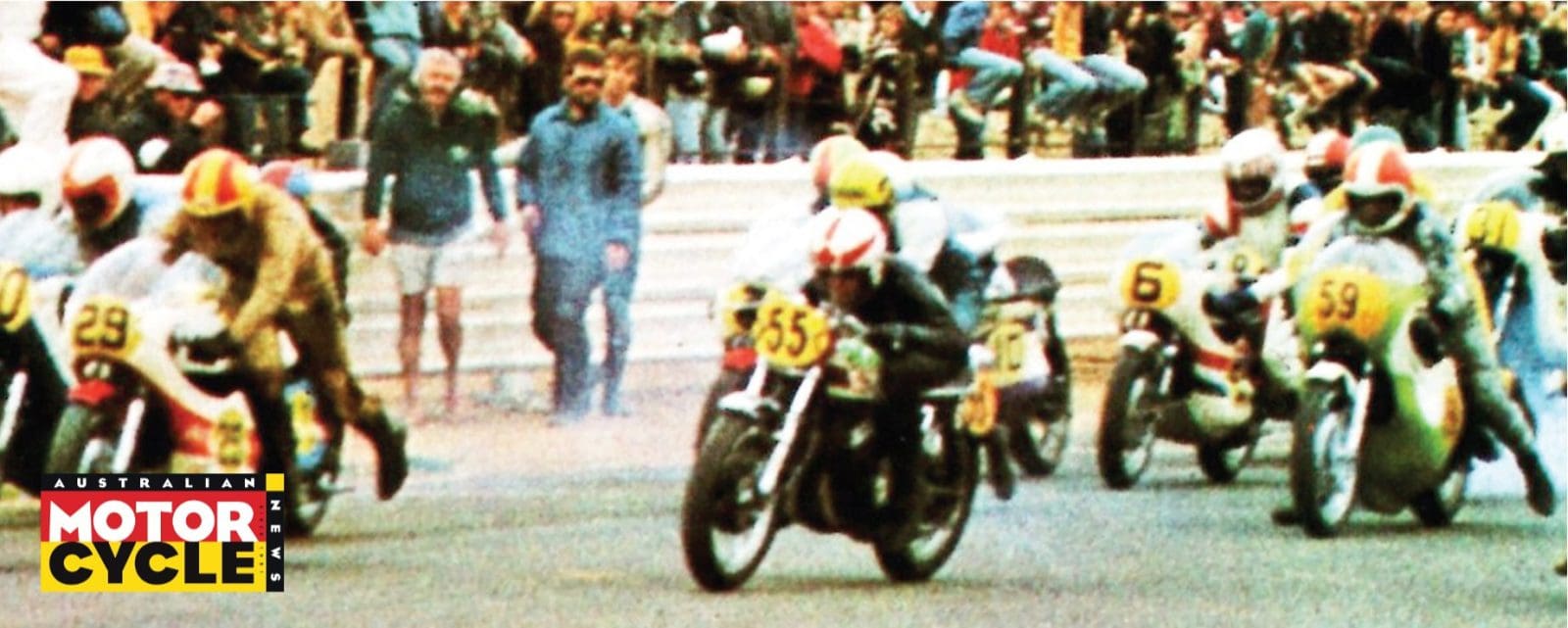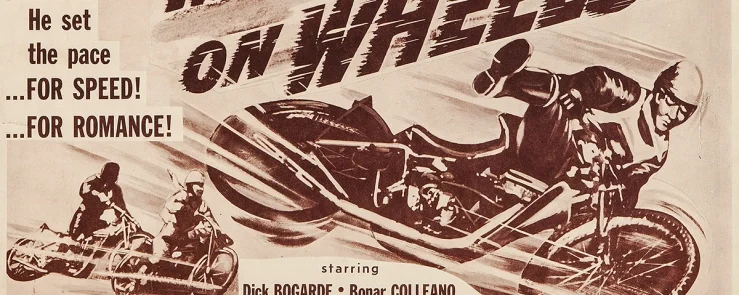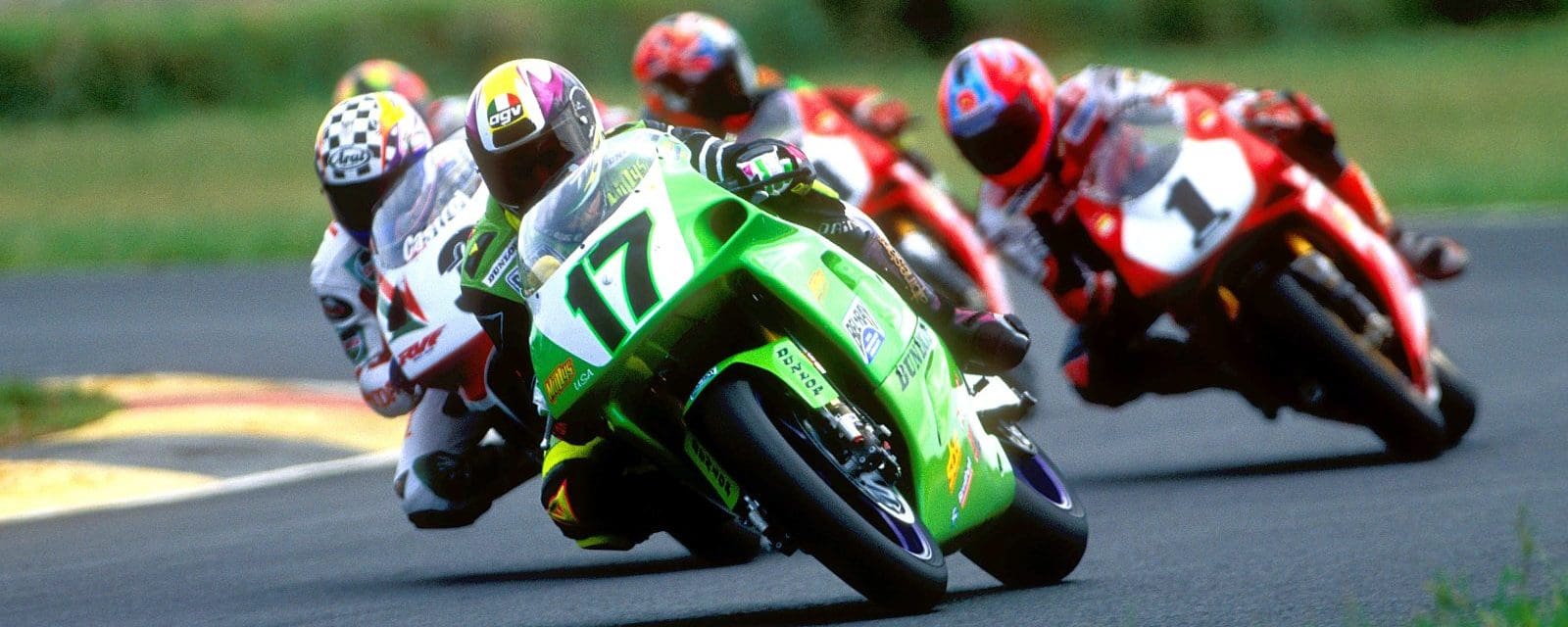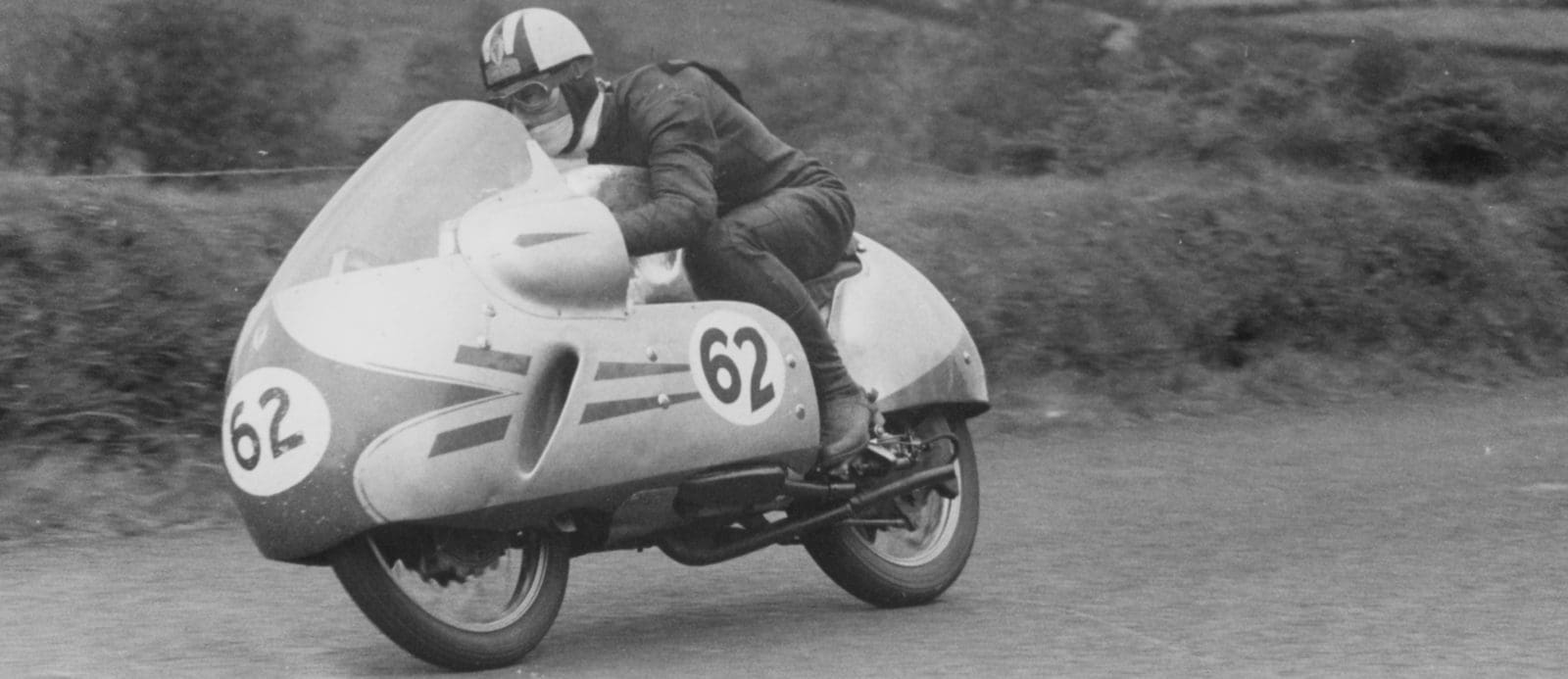A one-time streetbike maniac who was pointed in the direction of racetracks by his Sunday morning buddies, Art ‘The Dart’ Baumann was the first man to win a AMA road race on a two-stroke in 1969 at Sears Point. He later claimed pole at the 1972 Daytona 200 on a Suzuki 750, and in 1973 won himself a seat at Team Kawasaki alongside fellow wild man Yvon Duhamel, picking up a bunch of podium finishes for Team Green.
Ginger-haired Baumann lived in Brisbane, a quiet enclave just 10km south of central San Francisco. Rising Kiwi rider John Boote visited Baumann’s home in 1974 and was taken aback by the American’s mercenary dedication. The house backed onto the San Bruno Mountain State Park, which had a dirtbike track that he practised on. With such a wonderful playground to go hunting with his dog, Art preferred this sort of greenery to his Kawasaki H2R green meanie, but Baumann was no tree hugger according to Boote.
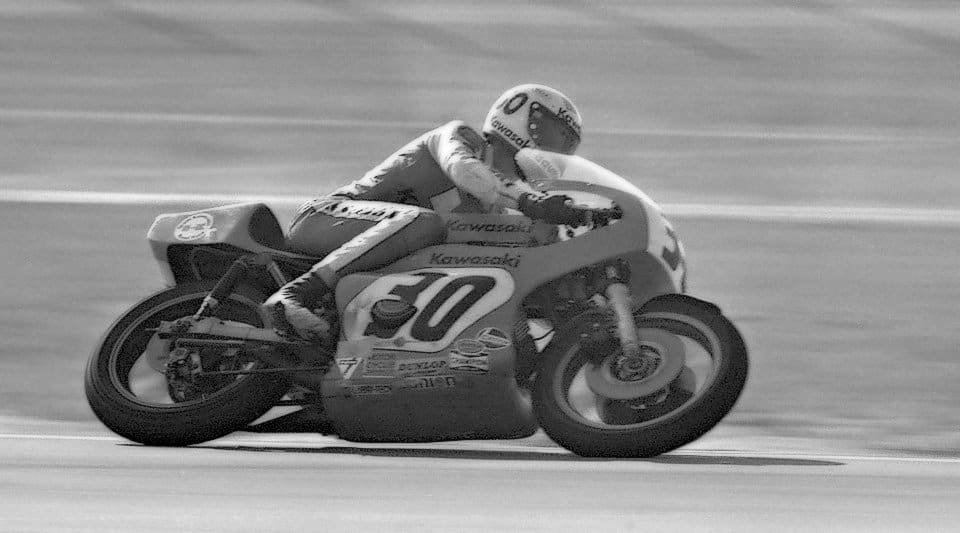
“He was a hard, hard man. Racing was a job, nothing more. Art took it very seriously, he wasn’t there for fun. It was about making money. He was very out-doorsy and loved hunting. I got the impression that he’d rather do that than race. Art was dedicated, but in a pure money-making way.
“I remember watching him going around Laguna Seca at a test day,” Boote recalls. “I was standing on the hill above turn one and I could see this lime green Kawasaki ripping by some riders around the outside over the blind crest, taking to the dirt and using it as a berm and somehow re-joining the track. It told me just how fearless and determined this guy was. I used a similar tactic the next year, and I ended up going from the back of the grid to finish second behind Kenny Roberts in 1975.”
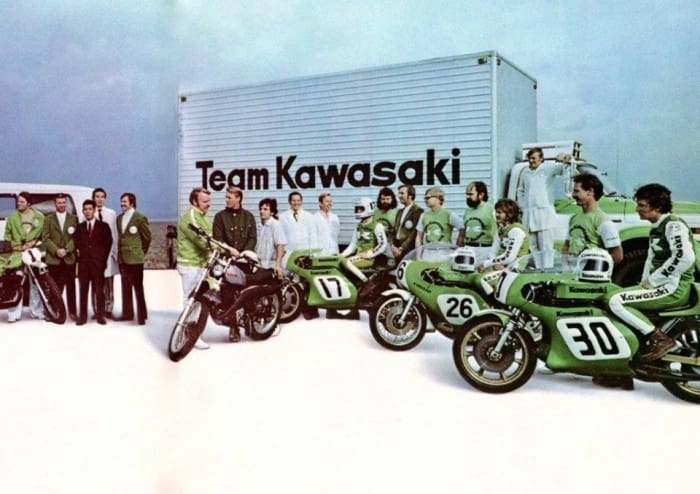
At the end of 1974, after a tough season, Kawasaki USA had all but closed its race team. Baumann, 31, was out of a job. After making a blinding start at Laguna Seca, he had crashed at 160km/h chasing Kenny Roberts. At Loudon he smacked into concrete wall, ‘swallowed’ his tongue and almost choked to death. After crashing at Ontario, he suffered yet another concussion and couldn’t remember which direction the track ran.
By the time Kawasaki dispensed with his services, Baumann had endured seven concussions and a fractured skull in his seven-year career. In 1975 he disappeared. He emerged later working six days a week as a mechanic at Honda of San Francisco in a corner of the workshop under a sign ‘Factory Trained Mechanic’. From piloting 280km/h Suzukis and Kawasakis, Baumann found himself fixing and testing CB360s in the Bay Area.
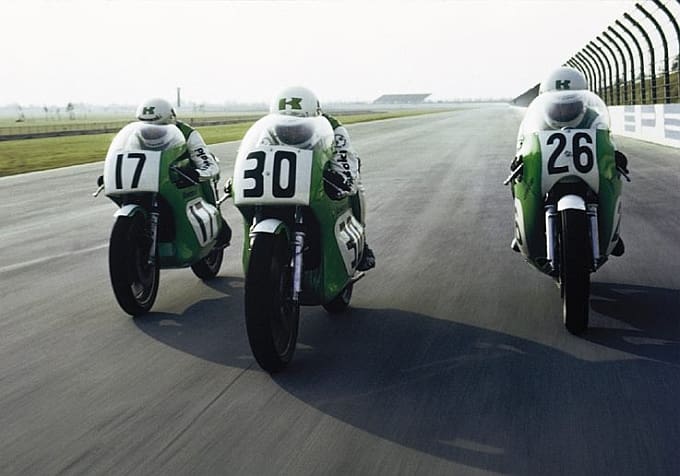
Baumann eventually came to terms with life away from pro racing after a very rocky start. “When you’ve been a factory rider for seven years, you better think about not having a ride. I started drinking too much after Ontario, and by Christmas I must have been an alcoholic. When I passed out at 10pm on New Year’s Eve that did it. I said to myself, ‘All right, Art, are you gonna be a bum? I mean, you’re not a factory rider anymore, you’re still Art Baumann.’ I quit drinking completely the next day. I feel like I’m back to normal in my head now.”
Baumann revealed he was clearing about $US1000 a month as a mechanic, almost the same dough as his sign-on contract with Kawasaki. He did, however, miss sponsorship and contingency monies. “I never realised how spoiled I was until I started to work every morning. When you’re racing, you don’t realise how much free time you have. You think jogging and riding a few hours a week is a week’s work.”
Baumann was philosophical about his fall from fame to anonymity, and remained phlegmatic about no longer competing at the highest level. “People I don’t even know have heard that I’m working as a mechanic, and they come in and just stare like ‘What are you doing here?’ I’m working, that’s what. A man’s gotta make a living, he has to work.”
Baumann had seemingly accepted his lot in life. His words now sound as much a self-warning as an ethos for others: “You have to be happy. And if you’re not happy, well you may as well do a big somersault off the Golden Gate Bridge.” Baumann never returned to competitive riding, and remained absent from the race scene. He died in February 2011, aged 67.
By Darryl Flack
